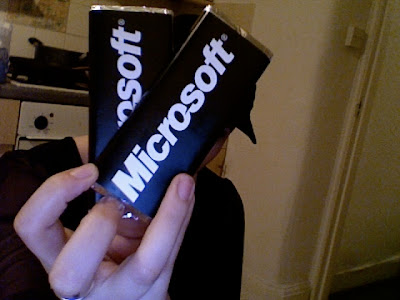My, what a can of worms. If I’m not willing to admit I’ve messed up occasionally, then this blog and all of my journalism is just wanking; so, my last post, which was accused of ableism and fat-bashing, was poorly explained and based partly on navel-gazing personal experiences of bulimia and anorexia, and has been duly edited down. Now, let me try to explain better:
Eating disorders are mental illnesses generated by personal and, to some extent, political disempowerment. They are reactions against an erroneously-perceived inner grotesquery: a feeling of being out-of-control, shameful, ugly, powerless and ‘fat’ as a cipher for all of those feelings.
It is fascinating, therefore, that a white, rich, middle-aged man who has held a high-profile public office and is famous – pretty much the defininition of empowerment in western culture – has suffered in relative silence from the same disorder for twenty years. Prescott represents and embodies a violent, headily consumerist political overculture – not because of his weight, but because of his conduct – and even he is suffering undeservedly.
It was this passage that drew the most criticism:
‘John Prescott represents everything every eating disordered person is frightened that they are personally: grotesque, violent, out-of-control, self-indulgent saddled with enormous responsibilities that they did not earn, and as if to symbolise it all, obese. Every bulimic, anorexic and bulimarexic thinks that this is what they are like on the inside.’
Yes, the language is vile. This is because the concept is vile. This vileness is what obesity symbolises for the eating disordered, and it’s a violent, painful way of turning that horror inwards. I have been deep down into the bulimic mindset and that feeling of inner foulness and grotesquery is despicable, choking, so deeply fucked-up that even now, three years later, I’m sitting at my rickety kitchen table with snotty tears rolling down my face. Bulimia, all eating disorders, are dreadful, and I reacted with aggreived consideration against a cultural sickness that I once internalised like so many others, and now see everywhere around me.
I can’t help but see a link between the feelings of grotesquery associated with eating disorders and the literal grotesquery of corrupt officials and white male consumerist hegemony. The medical profession is fairly unanimous that sufferers of eating disorders and other addictions are responding to external pressures and frustrations – both individual and cultural pressures. Unable to control their personal and political circumstances, bulimics turn that controlling impulse inwards. It is therefore highly indicative that a man like Prescott, who seems to embody that violent overculture, also has to fall back on disordered and dreadful coping mechanisms to deal with himself and with his job.
I have known so many fine, beautiful, thoughtful, talented young men and women cut down by eating disorders: confused, disenfranchised, bewildered by the ridiculous demands of a grotesque and hostile hypercapitalist culture, many of them –male and female - reacting to the increased demands of forced feminisation and gender fascism. The fact that some of the very people complicit in enforcing the overculture – people who, like Prescott, necessarily take on some of the characteristics of that culture –have turned to the same terrible methods of stress control should tell us a lot about how fragile the whole system is.
There is a lot of ugliness and violence out there, and one of the worst parts of recovering from bulimia - apart from the shame, the self-disgust and the terrifying weight gain –is that you start to see that ugliness and violence outside of yourself, in a political and ideological sense, rather than internalising it.
But the fact that our political leaders suffer in the same way tells us that there is no conspiracy going on here. Nobody has forced a grotesque hypercapitalist overculture on us: we have all sleepwalked there together, and even the most powerful cannot deal with its demands. And if we can sleepwalk there, we might just be able to stumble back.

